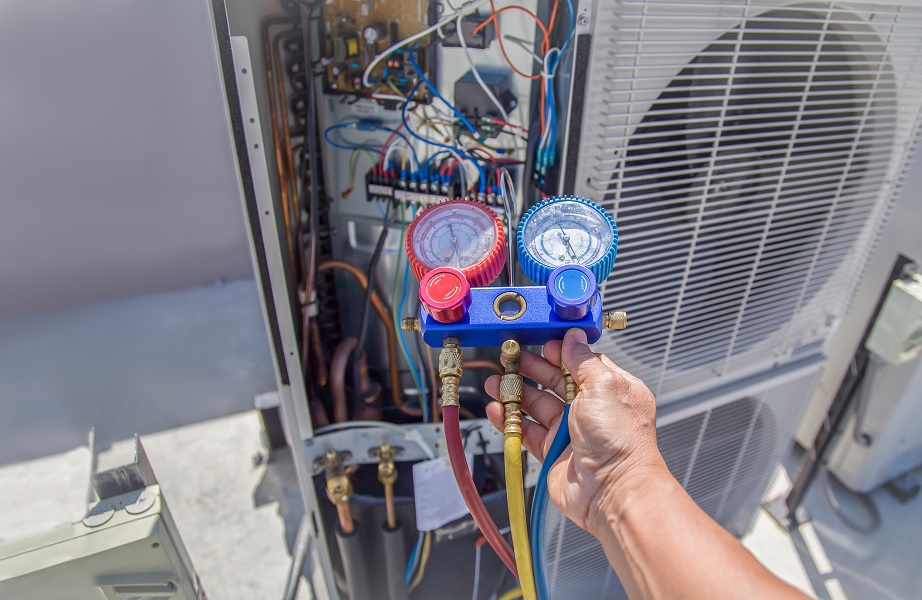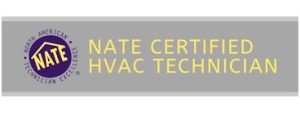
To become a licensed HVAC technician, individuals must undergo a rigorous training and certification process. HVAC technicians are among the most sought-after skilled technical workers in the U.S. job market. They find employment in residential, commercial, and industrial industry projects. The construction industry is booming in many areas and a lot of people are replacing their existing equipment and systems.
If you are interested in this career, you should start with a long-term vision. HVAC technicians experience working in a stable industry with competitive income and benefits. Begin with basic training and work experience, and advance with certification and perhaps licensing. Contact ITI Technical College today for more information.
HVAC Technicians Gain Essential Training In School
Develop your entry-level skills and knowledge in an accredited HVAC training program. A technical college is an ideal place for your education and preparation for the Environmental Protection Agency (EPA) 608 exam. You will train with real-world equipment to gain:
- The principles of heat transfer, refrigerants, and safe work practices
- Knowledge of basic electrical circuitry, motor controls, and wiring methods
- Skills in basic and advanced programmable logic controllers (PLCs)
- Working knowledge of The National Electric Code (NEC) and lighting systems
- Skills working with heating, air conditioning, refrigeration, and ventilation
- Working knowledge of PC Office and computer networking applications
- Workplace communications and an elective course
Students learn in the classroom, labs, field visits, and individual monitoring. They gain skills in troubleshooting HVAC issues and installing, maintaining, repairing, and removing equipment and systems.
An Alternative Approach To Training: Work Experience
 An alternative to a technical college degree is working under the supervision of a Licensed HVAC Technician for a few years. Since this approach varies by state, check with your state’s requirements before embarking on any training.
An alternative to a technical college degree is working under the supervision of a Licensed HVAC Technician for a few years. Since this approach varies by state, check with your state’s requirements before embarking on any training.
Yet another approach to gaining experience is completing an apprenticeship program. It involves up to 8,000 hours of supervised work in addition to some classes. Apprenticeships are often sponsored by HVAC industry organizations.
Of the three approaches to obtaining skills and knowledge, consider the benefits of each, the time to complete them, and their cost. Also, think about the need for and value of mentoring to meet your training needs. Check to see if the school, trainer, or apprentice sponsor will help you find your first job.
Earning HVAC Certification
Certification requirements vary from state to state but general requirements include earning a high school diploma and completing essential training. You should work for a few years to gain experience and expertise then pass your state’s certification exam.
There’s one certification that all HVAC technicians must earn called Section 608. There are four types of 608 certifications, and once you earn one or more, they will not expire:
- Type 1: Small Appliances
- Type 2: High-Pressure Appliances
- Type 3: Low-Pressure Appliances
- Universal: All Equipment Types
Technicians may also want to earn The North American Technical Excellence or NATE Certification that shows you are adequately trained to perform HVAC services
| “If you are interested in this career, you should start with a long-term vision. Begin with basic training and work experience, and advance with certification and perhaps licensing.” |
The Benefits Of Becoming A Certified HVAC Technician
Holding HVAC Certification provides several useful benefits that will enhance your career over the long term. In addition to increased credibility, you will enjoy:
- More networking opportunities
- Improved career paths
- More job opportunities
- Improved job security
- Higher-income
- Feeling of pride
Employers see certification as possessing competency in producing higher quality work and customer service. Certification also showcases a technician’s skills and knowledge. Customers see certification as the work will be done right the first time. They perceive greater value for their investment in a technician’s work and sense greater peace of mind in a finished project.
Three Certifications For Your Career
 There are three certifications you can obtain that include NATE, HVAC Excellence, and HVAC Quality Installation. NATE Certification demonstrates you have the necessary knowledge, technical skills, and abilities to excel in your work.
There are three certifications you can obtain that include NATE, HVAC Excellence, and HVAC Quality Installation. NATE Certification demonstrates you have the necessary knowledge, technical skills, and abilities to excel in your work.
An HVAC Excellence Certification shows you have mastered the competencies in this field with demonstrated experience. The HVAC Quality Certification demonstrates the ability to effectively design an HVAC system for residential or light commercial applications. Check with your state for specific requirements to obtain any or all these certifications.
Become A Licensed HVAC Technician
If your goal is to own and operate an HVAC business, you must be licensed by doing the following:
- Earn a technical degree in HVAC
- Or work for a licensed contractor
- Or complete an HVAC apprenticeship
- Pass your state’s EPA certification
- Pass your state’s licensing exam
- Demonstrate proof of liability insurance
For anyone who seeks self-employment in an HVAC business, it’s best to gain the skills and knowledge in a technical school program. An excellent training program is offered by ITI Technical College in Baton Rouge. Good fortune in your HVAC career.
For more information about graduation rates, the median debt of students who completed the program, and other important information, please visit our website at: https://iticollege.edu/disclosures/




